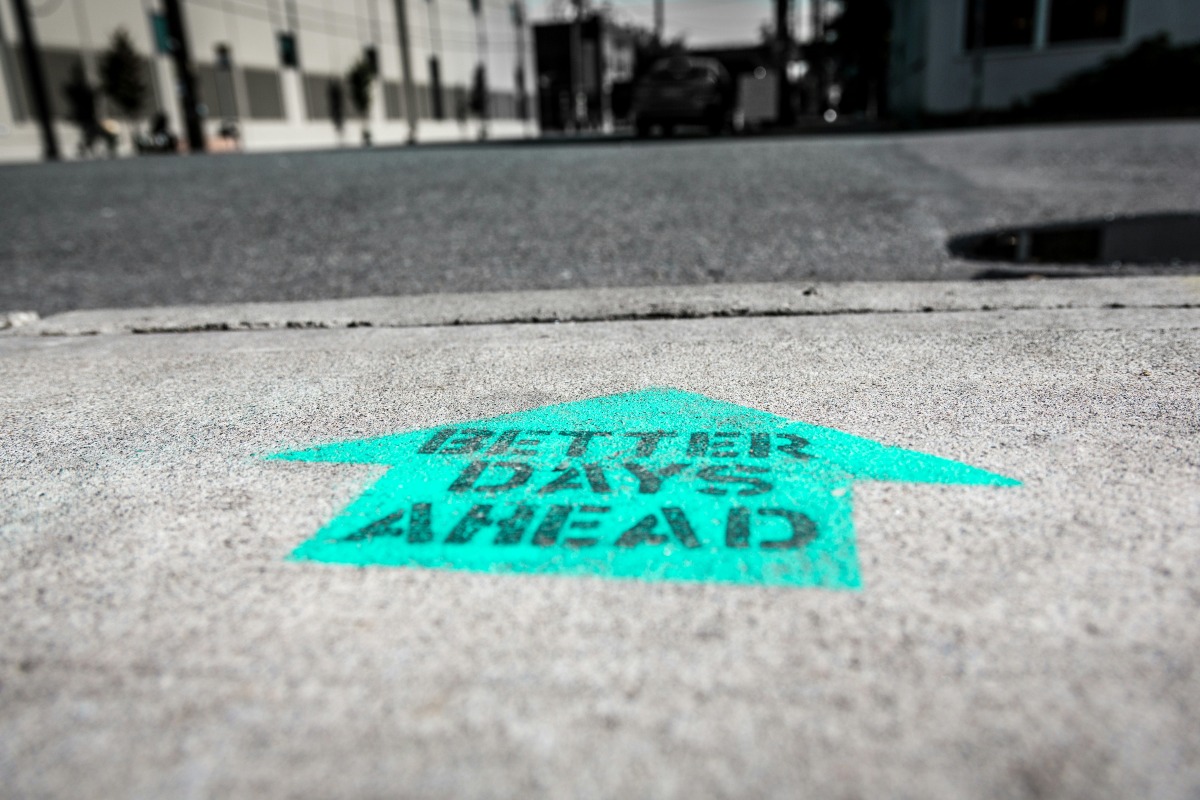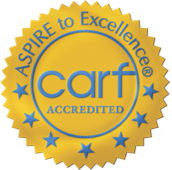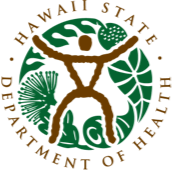Healing from addiction and substance use disorder (SUD) is not linear; rather, it is a process, filled with peaks and triumphs, as well as new challenges and doubt. While unfortunate, relapse can be common in those pursuing a healthier, sober life. However, relapse never marks the end of recovery from alcohol addiction or drug addiction. Experiencing a relapse is a challenging part of healing, but navigating and overcoming relapse and recovery, and continuing to explore an effective treatment program can help you or your loved one overcome relapse and continue the recovery journey.
Definition of Relapse
While relapse can be a part of recovery, knowing what it is is still important for navigating its effects. Being able to recognize a relapse and understand what it means for someone’s mental health, wellness, and sober journey can help you or your loved one navigate a relapse and its effects while refocusing on effective sober efforts.
What Is the Definition of Relapse?
A relapse is a return to the use of alcohol, drugs, or other addictive substances, and the lifestyles that enabled their use. Not only may a person begin drinking alcohol again, but they may also do so multiple times, and at similar levels as before a person began their healing journey. A person experiencing a relapse may experience intense cravings and see treatment, support groups, or family members as hurdles to continued use rather than the support system they are. It is a change not just in sobriety, but also in problematic behavior patterns.
Relapse is also different than a “slip” in recovery. A slip is a one-time return to drugs or alcohol, typically resulting from an intense craving or from unexpected stresses, such as going to a wedding where alcohol is unexpectedly being served. Those experiencing a slip may take a single drink of alcohol before putting the drink down and contacting supports to manage alcohol and drug use.
While a person may engage with drugs or alcohol, a slip does not mean a person has returned to the lifestyle that enabled such use, and a person can refocus quickly on their sober goals. A relapse is more intense, with a return to lifestyles, habits, or social groups associated with sustained substance abuse.
What Does it Mean to Relapse?
Relapse in recovery is challenging and can mean many different things, depending on the person. For some, experiencing a relapse indicates a gap in their coping strategies or challenges in navigating a new or unexpected trigger in their sober journey. There may also be newfound stresses in life, from interpersonal stresses to challenges in professional life that a person may not be prepared to deal with without support.
Experiencing a relapse means that a return to some level of care to develop new coping strategies is necessary to develop new strategies and skills while also distancing oneself from the stresses and challenges that caused the relapse in the first place. Meanwhile, a relapse does not mean that a person’s journey in sobriety is over, or that they are “beyond” sobriety or a healthy, sober life. Relapse means that taking time to work with professionals again, exploring personal motivations, adding new skills and coping strategies, and more is all necessary to prevent relapse again in the future.
Does Relapse Always Happen In Addiction Recovery?
While relapse is common throughout the recovery process, it is not guaranteed to happen. It is possible to live a healthy and sober life without experiencing a relapse. Early intervention and effective relapse prevention skills, as well as working with family members and sober communities, can help prevent relapse.
However, each person’s journey is unique, and while not all people will relapse in their journey, it is crucial to prepare for these challenges. Likewise, focusing on one’s sober journey, personal challenges, and more, rather than comparing their journey with others, is the best approach to navigating each person’s unique challenges and goals throughout the healing process.
Warning Signs Of Relapse
Relapse can be devastating, but while it never marks the end of a person’s recovery journey, there are still signs to be aware of to help prevent relapse and its destructive effects. Working with trusted loved ones, family members, and the professionals and peers at Hawaii Island Recovery can all help to explore warning signs of relapse and take action before returning to destructive substance use.
What are the Warning Signs that I Might Relapse?
Signs of relapse can be the first indication that a person should take action to address new stresses, challenges, or situations that may be impacting daily life. Relapse is possible at any stage of recovery, from detox and the early stages of healing to even those who have maintained a healthy sobriety for months or years. Familiarizing oneself with these signs can ensure that those living their best sober life and trusted family members and loved ones can all take action to address relapse before it takes hold. Some of these common signs of relapse include:
- Increased mental health issues or challenges, from stress and feelings of anxiety to worsening feelings of depression or other mental illness
- Loss of interest or inability to tend to self-care or personal hobbies
- Feelings of hopelessness, pointlessness, or being overwhelmed by expectations
- Increasing recurrence of cravings and urges to re-engage with alcohol or drugs
- Feeling disconnected from recovery, as if it is “pointless,” or feeling overconfident in coping skills, especially if then intentionally putting oneself in higher risk scenarios, such as going to a bar with friends
- Romanticizing past use of drugs or alcohol, or fantasizing about this time
- Minimizing the consequences of past drug or alcohol use
Those in sobriety may also “make deals” with themselves or change parameters, such as thinking they can drink “just on weekends” or that it should be okay to “treat themselves” now since they feel they can manage their use. These signs can all introduce unnecessary risk and lead not just to slips in recovery, but also to relapse that demands professional support to address.
What Behavioral Changes Could Signal a Relapse?
A person may also begin to change daily behaviors before actually reengaging with drugs or alcohol. Noticing changes in daily routine and behaviors can be another indication that a person may be considering using alcohol or dangerous drugs like heroin, opioids, benzodiazepines, or other drugs. These behavioral signals can include:
- Increases in self-isolating behaviors, especially from trusted friends and family members
- Missing ongoing outpatient and support group recovery meetings
- Containing emotions or avoiding asking for help, especially if under the pretext of “bothering” someone
- Reconnecting with social groups associated with past substance use
- Getting defensive when discussing substance use and recovery progress
- Neglecting responsibilities at home or the workplace
- Increases in risk-taking or potentially self-destructive behaviors
- Changes in routine or sleep schedule
What Physical Changes Might Signal a Relapse?
Lastly, there can also be physical changes that can indicate a person may either be considering using again, or is actively experiencing a relapse. These physical changes can include:
- Changes in hygiene routines, or not prioritizing hygiene
- Sudden weight changes or inconsistent mealtimes, especially when paired with a history of eating disorders
- Onset of physical health issues akin to withdrawal symptoms, such as baggy eyes, thinning hair, stomach issues, or persistent headaches
Noticing these potential signs of relapse in oneself or a loved one is just the first step. Having an honest dialogue with a loved one or a professional may be necessary to address potential relapse and how changes to a person’s treatment program may benefit the situation.
Causes of Relapse
Asking, “What does it mean to relapse?” and uncovering the cause of relapse is common. However, not everyone will relapse for the same reason. Rather, just like all other parts of recovery, it is a unique and personal journey. Each person may experience different stresses, challenges, and more to their sobriety throughout their sober journey. However, there are common factors that can contribute to a relapse. These may include:
- Sudden onset of newfound stresses in personal life or professional life: This can include longer working hours, changes in workplace expectations, an increase in responsibilities at home, and more, especially when paired with a lack of resources to accomplish these tasks or unrealistic deadlines or workloads.
- Compromised self-care outlets: This can include finding less joy or benefits from self-care routines, or an inability to access self-care outlets for various reasons.
- Increase in feelings of anxiety, depression, or other mental health issues: This can be related to stress and unique personal triggers, as well as an increase in stressful environments such as online social media apps, exposure to negative news stories, or divisive political conversations.
- Overconfidence in practiced coping strategies: This can result from the belief that an individual is “cured” of addiction.
Recovery is an ever-evolving journey, and a person may be exposed to new stresses in sobriety that they were unaware of before. New triggers and challenges can always be discovered that may test a person’s sobriety and resilience in new ways. Exposure to new life-changing events, such as moving to a new area, changing jobs, changing social groups, and more, can all present new challenges that can impact sobriety and coping skills, increasing the chance of relapse.
Why Relapse Does Not Equal Failure
Even if relapse can be a common challenge for many throughout recovery, experiencing a relapse never means that a person has “failed” in their recovery journey. Just because a person experiences a relapse does not mean that there aren’t effective coping strategies in play, or that a person has to wholly “restart” their journey. Rather, it just means that there may be specific gaps or new challenges that arise and demand focus and attention.
Relapse is part of recovery, and not the end of it. Talking with a professional at Hawaii Island Recovery can also help each person learn from their relapse by exploring the unique factors that led to the event. Exploring new stresses, support groups, developing new escape plans, and focusing on mental health wellness are all part of the journey after a relapse, and can open the avenue to more focused strategies. For many, a relapse can also serve as a wake-up call on the hard work it takes not just to establish a sober life, but to maintain it, bringing new motivations and convictions to further their recovery journey.
Relapse means that changes must be made, and new skills developed. However, there are always support groups, professional treatment facilities, and programs to help make these changes. From contacting a helpline to calling Hawaii Island Recovery, a relapse just means that it’s time to plan out the next step in sobriety.
Moving Forward Following a Relapse
Experiencing a relapse can present even more stress and new challenges for individuals and their families. However, having a plan following a relapse can ensure that a person can refocus on their sober healing. This can be challenging, but there are steps that each person can take to continue moving forward after a relapse.
Acknowledge That Relapse is a Part of Recovery
The most important step in experiencing a relapse is acknowledging that a person is in the throes of one and admitting the need for support during this time. This can be difficult, with feelings of shame, guilt, and prevalent stigmas all making it difficult. However, acknowledging the relapse can empower each person to approach the situation more honestly and be ready to address challenges and make the necessary changes.
Reach Out
Next, it is important to contact supports and a professional treatment facility to discuss the factors that led to relapse, as well as the extent of a person’s use. Talking to professionals, sponsors, or other supporters about the situation can help navigate stigmas and barriers, refocusing on treatment while receiving proper and informed support to take this next step together.
Participate in Detox and Return to Treatment
Experiencing a relapse means that returning to some level of care is necessary. Detoxing the substances from the body is paramount. However, this doesn’t mean that a person will entirely restart their journey. For some, a return to residential treatment programs may be necessary to separate from unexpected stresses or discover the underlying reasons behind a relapse. Others may move from detox to outpatient care while personalizing their treatment plan. Which is most appropriate will depend on the situation and personal needs.
Supporting Yourself as a Support
Addiction and relapse affect entire families, and family members are often profoundly affected by a return to drug and alcohol use. For many, feelings of betrayal, blame, and guilt are common. However, families can also be instrumental in not just developing new relapse prevention strategies, but also supporting new changes at home.
Family members play an important role throughout recovery, but it should never come at the expense of their well-being. Continued engagement in personal self-care outlets, hobbies, and daily life while a loved one experiences a relapse is paramount. Working with a loved one to explore new stresses can also inform changes at home, from new rules at home to manage substance use to exploring new outlets together, like new family activities and hobbies. Meeting with mental health and addiction professionals to discuss difficult feelings and forgiveness may also be necessary to best support oneself before supporting a loved one.
Addressing the situations with sympathy, rather than blame, can be challenging. It may take time before support people are ready to talk about it, and this is okay. Take time to organize thoughts and approach the situation with severity as well as compassion. It may also be crucial to set new boundaries during this time for one’s mental health and wellness, tending to personal needs first while learning more about relapse and having a plan to address this new challenge to a loved one’s sober journey.
While difficult, it is also important to recognize the strength it takes to recommit to sobriety. Admitting the effects of a relapse and reaching out for help takes a lot of bravery. While there can still be justifiable feelings of anger and resentment, it is still important to celebrate this step in healing as a loved one refocuses on their sober healing.
Recovery and sobriety are a journey for everyone, from individuals to families and communities. Healing is a process. Family members and loved ones will need their own time and support to navigate these challenges. Attending meetings together following a relapse to learn more, develop a short-term list of changes, and explore personal needs as a support are all necessary and can make a huge difference in the effective, transformative healing necessary after a relapse.
Relapses present a difficult hurdle and setback in recovery. However, they never mark the end of it, and become an important part of each person’s story in their journey to sobriety. At Hawaii Island Recovery, we believe there are always new strategies to try, and that nobody is ever beyond a healthy, sober life. We support sobriety and change across the entire continuum of care, from detox and residential treatment to ongoing outpatient support, so we can help you find the best place to refocus your sober efforts. We also offer a range of evidence-based and holistic healing options, so there is always something new to try as you embark on your healing journey again. Learn more at (866) 390-5070.












